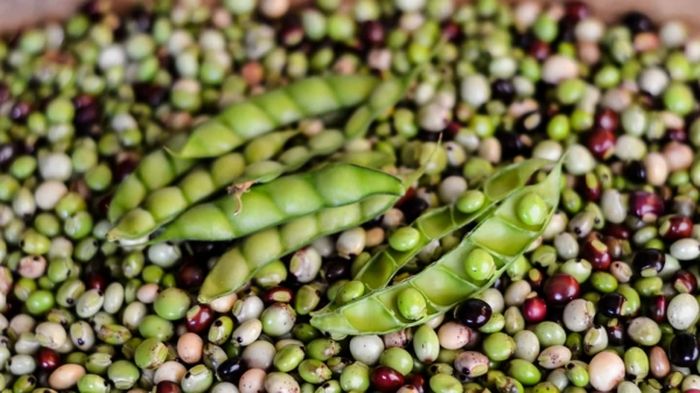India has a new all-season pulse

A breakthrough pigeonpea variety, ICPV 25444, developed through speed breeding, can withstand temperatures of 45°C during summer growth. It is the first of its kind in the world and a boon for farmers in India.
Scientists at the International Crops Research Institute for the Semi-Arid Tropics (ICRISAT) have developed ICPV 25444, a first-of-its-kind pigeonpea (or kayan, a legume) variety that can withstand high summer temperatures and matures in just 125 days, a significant achievement for Indian agriculture, ICRISAT said in a release.
This heat-, light- and heat-tolerant variety has been successfully tested in the states of Karnataka, Odisha and Telangana in India, showing a yield of 2 tonnes per hectare. Most importantly, it represents a breakthrough in pigeonpea cultivation, allowing the crop to be grown not only during India’s traditional kharif rainy season, but also in the extreme summer heat, when temperatures reach 45°C.
Until now, pigeonpea cultivation has been limited to certain seasons due to its sensitivity to photoperiod and temperature. ICPV 25444, which is currently undergoing field trials, marks a turning point – making pigeonpea an all-season crop and opening up new opportunities for Indian farmers.
“This breakthrough in developing a summer-adapted pigeonpea variety is a shining example of what science can achieve when driven by urgency and purpose. By making pigeonpea an all-season crop, our scientists have come up with a timely solution that can address the pulse shortage and climate challenges faced by farmers across India,” said Dr. Himanshu Pathak, Director General, ICRISAT.
“This breakthrough was made possible by the world’s first accelerated breeding protocol for pigeonpea developed by ICRISAT in 2024. The protocol has enabled researchers to breed up to four generations per year, reducing the time required to develop a new variety from 15 years to just five,” said Dr. Stanford Blade, Deputy Director General, Research and Innovation, ICRISAT.
Currently, India produces 3.5 million tonnes of pigeonpea per year, which is less than the 1.5 million tonnes required to meet domestic demand. This translates into imports worth US$ 800 million per year.
The new variety supports a dual strategy to boost domestic production:
Vertical expansion with high-yielding kharif varieties on 5 million hectares.
Horizontal expansion on rabi fallow and summer fallow lands with irrigation, made possible by the heat tolerance and short maturity of ICPV 25444.
Heat-tolerant pigeonpea varieties have great potential for expansion in India, especially in the 2-3 million hectares of persistent drought risk management zones dominated by rice-rice, rice-maize or rice-vegetable systems. During drought, second cropping becomes unprofitable.
Kayan, with a yield potential of 1.5-2 tonnes/ha, can increase profitability by US$ 234/ha. Targeted deployment using remote sensing/GIS, along with improved agronomic and seed systems, can scale up to 1 million hectares.
As climate variability continues to challenge traditional cropping cycles, ICPV 25444 is a timely innovation. It provides farmers with a climate-resilient, high-value crop that can be grown in increasingly unpredictable seasons, paving the way for more secure livelihoods and sustainable food systems.
“ICRISAT is developing a global panel of trait diversity from the entire pigeonpea genebank collection (13,000 accessions) using an accelerated breeding platform. This enables the Institute to support breeding programmes around the world, with active collaborations in Asia, Australia, Brazil, Ecuador and Africa,” said Dr Sean Mayes, Director of the Global Accelerated Crop Improvement Research Programme at ICRISAT.
Farmers who tested the new product in the field were very pleased with the results.
Read also
Turkish Ports Added to UkrAgroConsult LineUp Reports
Serbia’s autumn-sown wheat area rises 5.2%
Cocoa bean prices are below $4,000 for the first time since 2023, driven by fallin...
Wheat prices remain unchanged for the third week in a row on the CPT Odesa basis
Louis Dreyfus launches new high-oil seed crushing line in Argentina
Write to us
Our manager will contact you soon



